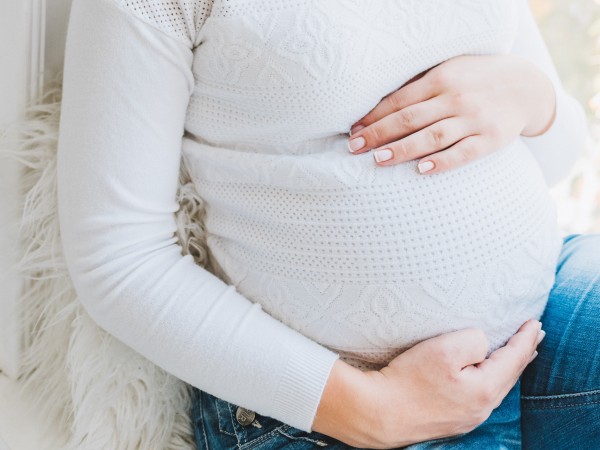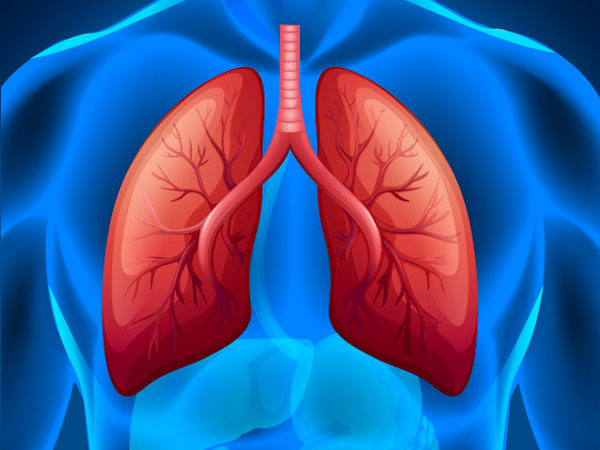Just In
- 9 hrs ago

- 9 hrs ago

- 12 hrs ago

- 12 hrs ago

Don't Miss
- Movies
 Truth Behind Shruti Haasan & Santanu Hazarika's Break Up; Duo Living Separately After Unfollowing Each Other?
Truth Behind Shruti Haasan & Santanu Hazarika's Break Up; Duo Living Separately After Unfollowing Each Other? - Finance
 1:5 & 1:2 Split, Rs 6/Sh Dividend: Fertilizer Stock Coming Up With 600% Payout; Record, Payment Dates Fixed
1:5 & 1:2 Split, Rs 6/Sh Dividend: Fertilizer Stock Coming Up With 600% Payout; Record, Payment Dates Fixed - Sports
 SRH vs RCB: 'Statpadder' Virat Kohli faces Fans Wrath after 118.3 Strike Rate
SRH vs RCB: 'Statpadder' Virat Kohli faces Fans Wrath after 118.3 Strike Rate - News
 Delhi Mayoral Polls Postponed Due To CM's Detention, LG Raises Appointment Concerns
Delhi Mayoral Polls Postponed Due To CM's Detention, LG Raises Appointment Concerns - Automobiles
 Royal Enfield Unveils Revolutionary Rentals & Tours Service: Check Out All Details Here
Royal Enfield Unveils Revolutionary Rentals & Tours Service: Check Out All Details Here - Technology
 Elon Musk’s X Is Launching a TV App Similar to YouTube for Watching Videos
Elon Musk’s X Is Launching a TV App Similar to YouTube for Watching Videos - Education
 AICTE introduces career portal for 3 million students, offering fully-sponsored trip to Silicon Valley
AICTE introduces career portal for 3 million students, offering fully-sponsored trip to Silicon Valley - Travel
 Escape to Kalimpong, Gangtok, and Darjeeling with IRCTC's Tour Package; Check Itinerary
Escape to Kalimpong, Gangtok, and Darjeeling with IRCTC's Tour Package; Check Itinerary
COVID-19: Why Are Pregnant Women And Mothers Not Allowed To Donate Plasma? EXPLAINED
Plasma therapy has come out as an effective adjuvant method to treat COVID-19 patients, especially those with severe symptoms. The therapy involves transfusion of plasma collected from patients who have recovered from the coronavirus, and transferred to those who are ill with the infection, in an attempt to neutralise the virus at a faster rate due to passive immunity. [1]

Though the process requires plasma from COVID-19 recovered patients, not all patients who have recovered are eligible to donate.
Studies have shown that those who are pregnant or multiparous (given birth to more than one child) are excluded from the plasma donors' list due to certain complications such as acute lung injury that arise in receivers after the transfusion. [2]
In this article, we will discuss why anyone who is or has ever been pregnant is not allowed to donate plasma. Take a look.

Plasma Donation And Pregnancy
As per the guidelines of plasma donation, anyone who is pregnant or have been pregnant and given birth, are not allowed to donate plasma due to the high risk of transfusion-related acute lung injury (TRALI) caused due to anti-HLA antibodies.
This fatal syndrome has been characterised over the past 20 years due to an increase in the number of cases with symptoms like hypoxia, breathlessness and other pulmonary changes, resulting in lung trauma and other forms of lung injury. [3]
The topic is still a subject of international debate as the development of lung conditions after receiving plasma from a pregnant individual is not clearly understood.
Theoretically, it is concluded that HLA antibodies and leukocytes produced during the pregnancy could be responsible for the development of lung conditions.


What Is TRALI?
TRALI stands for transfusion-related acute lung injury (TRALI) and is caused by anti-leukocyte antibodies. It is an uncommon condition that triggers respiratory failure within hours of getting the transfused blood plasma. In some cases, the development of respiratory failure can also be delayed.
To diagnose TRALI, there should be no preexisting acute lung injury before the transfusion. Also, the symptoms such as dyspnea and tachypnea must occur within six hours of the plasma transfusion. [4]
Studies say that even a single unit of blood or blood product can cause the syndrome and the plasma transfusion should only be the identifiable cause of lung injury. In delay TRALI, the symptoms may occur within 6-72 hours.

What Is HLA?
HLA stands for Human leukocyte antigen; they are types of antibodies formed in an individual body after pregnancy. HLA antibodies do not cause any harm or have no effect on the person.
For example, in pregnant women, the foetus gets half of its genetic material from the mother and another half from the father. Sometimes, the genetic material from the father can cause confusion to the mother's immune system as foreign material.
We know that our immune system releases antibodies as soon as it detects any foreign material. Therefore, due to the unidentification of paternal genetic material, the maternal immune response may respond, and as a result, rejection of the foetus can occur. [5]
To maintain the harmony of the immune responses for the father's or partner's genetic material, child-specific HLA antibodies or antibodies against the HLA of the father are produced in the mother's body, which plays an important role in the safety of the foetus.
The prevalence of HLA antibodies increases significantly with more pregnancies. This is the reason why HLA antibodies are found most frequently in multiparous women.


Why Is Plasma Donation By Pregnant Women And Mothers Not Suggested?
Due to the presence of both maternal antibodies and HLA antibodies in individuals who are pregnant or have been pregnant before, plasma donation is not suggested.
Even women who have been pregnant for four months or more and have experienced miscarriage are not eligible to donate.
These HLA antibodies do not harm the mother, but when transfused to other patients, they could trigger certain complications such as TRALI and cause adverse effects. [6]
A study has shown that of total TRALI reported cases to the American Red Cross from 2003-2005, 75 per cent of fatalities were due to plasma transfusion from female donors. [7]

Can Pregnant Women Receive Plasma?
Yes, pregnant women can receive plasma and be treated for coronavirus or other illnesses that require plasma.
A study talks about pregnant women who have been severely ill with COVID-19 and are treated with plasma therapy, along with other medications. The therapy has improved the mother's condition and reduced the possible risk of preterm caesarean delivery and other COVID-19 symptoms. [7]

Treatment Or Management Of TRALI
- If respiratory failure is noticed in a receiver, the transfusion should be stopped immediately and the blood bank should be notified to screen the HLA antibodies in the donor. [8]
- The ventilation method should be implemented to improve the oxygenation of the receiver.
- Prevention of volume overload.
- Other medications to prevent complications related to lung infections.
- After stopping the transfusion, the recovery may occur within 2-4 days.
Pregnancy After Stem Cell Transplantation: What You Need To Know
To Conclude
Before the administration of plasma, they should be monitored effectively for anti-HLA antibodies. The best thing to do is to use plasma from male donors and just screen the female plasma for HLA antibodies.
Also, people should be made aware of this syndrome to prevent a large number of multiparous women from donating plasma, which will be of no use to others.
-
 healthExclusive: Expert Debunks 5 Common Misconceptions About Expectant Mothers That You Need To Steer Clear From
healthExclusive: Expert Debunks 5 Common Misconceptions About Expectant Mothers That You Need To Steer Clear From -
 healthSolar Eclipse 2024: Dos and Don'ts for Pregnant Women During Surya Grahan
healthSolar Eclipse 2024: Dos and Don'ts for Pregnant Women During Surya Grahan -
 healthLunar Eclipse 2024: Dos And Don'ts For Pregnant Woman During Chandra Grahan
healthLunar Eclipse 2024: Dos And Don'ts For Pregnant Woman During Chandra Grahan -
 fashionDeepika Padukone-Ranveer Singh Announce Pregnancy: 6 Maternity Outfit Ideas For The Modern Mom-to-Be
fashionDeepika Padukone-Ranveer Singh Announce Pregnancy: 6 Maternity Outfit Ideas For The Modern Mom-to-Be -
 healthLate Singer Sidhu Moose Wala's Mother Is Pregnant Through IVF, Know What It Is And How To Prepare For It
healthLate Singer Sidhu Moose Wala's Mother Is Pregnant Through IVF, Know What It Is And How To Prepare For It -
 insyncVirat Kohli And Anushka Sharma Name Their Baby Boy 'Akaay', Know What This Beautiful Name Means?
insyncVirat Kohli And Anushka Sharma Name Their Baby Boy 'Akaay', Know What This Beautiful Name Means? -
 pregnancy parentingMaternal Health Awareness Day 2024: 15 Foods That Boost Maternal Health
pregnancy parentingMaternal Health Awareness Day 2024: 15 Foods That Boost Maternal Health -
 pregnancy parentingFrom Contractions To Water Breaking: Knowing When It's Time For The Hospital During Pregnancy
pregnancy parentingFrom Contractions To Water Breaking: Knowing When It's Time For The Hospital During Pregnancy -
 pregnancy parentingBirth Control Pills Can Affect This Primary Function In Women: Find Out What
pregnancy parentingBirth Control Pills Can Affect This Primary Function In Women: Find Out What -
 pregnancy parentingTwo Wombs, Four Hearts: US Mom's Extraordinary Double Uterus Pregnancy
pregnancy parentingTwo Wombs, Four Hearts: US Mom's Extraordinary Double Uterus Pregnancy -
 healthExclusive: A Pregnant Mom Can Posses These Maternal, Fetal Health Risks If Exposed To Air Pollution
healthExclusive: A Pregnant Mom Can Posses These Maternal, Fetal Health Risks If Exposed To Air Pollution -
 pregnancy parentingDelhi Air Pollution: Pregnant Women Must Follow These 4 Things!
pregnancy parentingDelhi Air Pollution: Pregnant Women Must Follow These 4 Things!


 Click it and Unblock the Notifications
Click it and Unblock the Notifications



